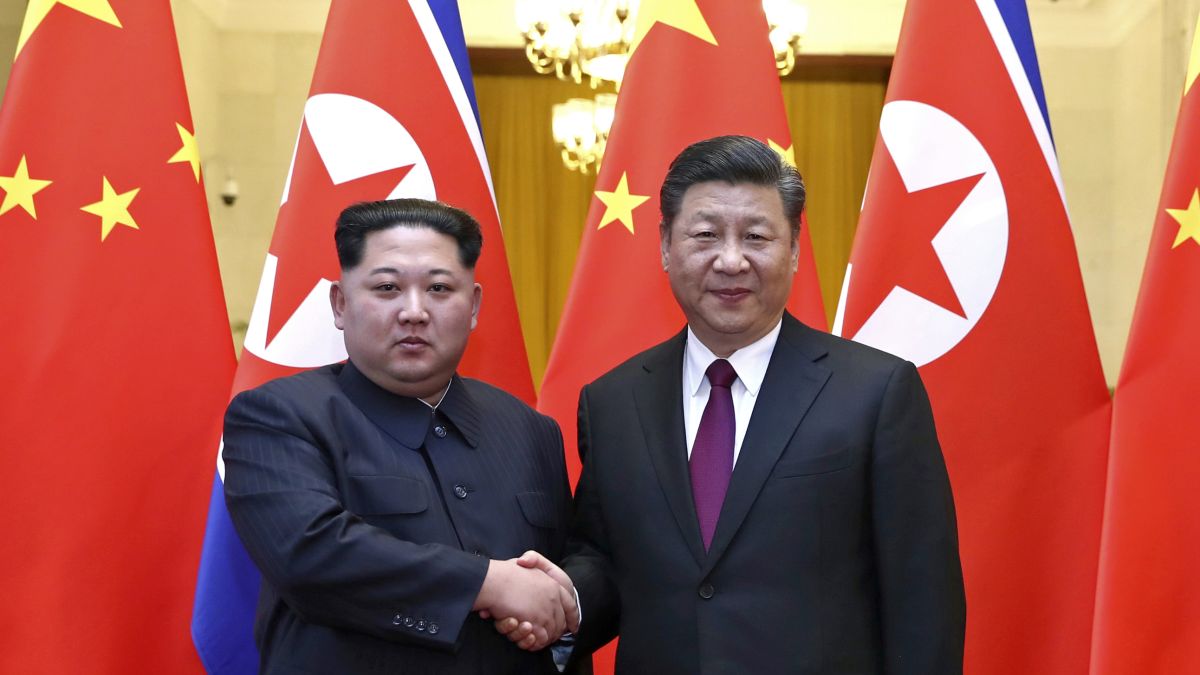China makes its move
March 28, 2018 | Expert Insights

The governments of China and North Korea have confirmed that North Korean leader Kim Jong Un made an “unofficial” visit to Beijing in March 2018. During this visit, he reportedly spoke about North Korea’s willingness to denuclearize.
Background
From the time of its formation at the end of the Korean War in the early 1950s, China has been North Korea’s most important ally, as well as its principal trading partner, with the majority of North Korean exports, mainly in the form of coal and seafood, finding markets across the border in China.
However, as China has grown and sought to increase its influence in the world, becoming a major economic and political force on the world stage, its once warm relationship with its eastern neighbour has become increasingly strained over the years. Where China once occupied a position of significant power and influence over North Korea, its newest leader, Kim Jong Un has made several moves to assert his own independence. This has signalled a shift the traditional balance of power in China – North Korea ties. Experts have noted that on more than one occasion the current North Korean leader even snubbed the Chinese leadership. This has led to a marked cooling of diplomatic ties between the countries and put considerable strain on their relations.
They are both communist nations and share cultural similarities. China's economic assistance to North Korea accounts for about half of all Chinese foreign aid. Beijing provides the aid directly to Pyongyang, thereby enabling it to bypass the United Nations. During the period of severe food shortage between 1996 and 1998, Beijing provided unconditional food aid to North Korea.
Analysis
After much speculation, Beijing and North Korea have confirmed that Kim Jong Un visited China in March 2018. This is the first trip to Beijing undertaken by Kim Jong Un since he came into power in 2011. In fact, this was the first time, the leader of the isolated nation had left North Korea since 2011.
According to Chinese media, he held “successful talks” with the Chinese government. He is reported to have stated, “The issue of denuclearisation of the Korean Peninsula can be resolved, if South Korea and the United States respond to our efforts with goodwill, create an atmosphere of peace and stability while taking progressive and synchronous measures for the realisation of peace.”
Even though the visit was confirmed, it was not an “official” state visit. Due to this, the visit was not announced prior to it taking place. In addition, some of the formal protocols were flouted. "It makes sense for North Korea to explain their positions and co-ordinate with China, their most important partner," Andray Abrahamian, research fellow at Pacific Forum CSIS, told the BBC. He added, “Relations have been extremely strained in the last five years and China has been sidelined in the diplomacy of the last several months. From Beijing's perspective, this is a visit that should have happened some time ago.”
“This is a positive political signal that Pyongyang is ready for more dialogue,” said Michael Kovrig, senior adviser for north-east Asia at the International Crisis Group, an independent conflict-prevention organisation. “But the challenge, will be creating the trust and conditions under which Kim would actually feel secure enough to denuclearise, while remaining vigilant on proliferation and deterrence. That won’t be easy.”
The US administration has meanwhile revealed that China had notified Washington of the visit. The statement from the White House read, “The White House said China had briefed the US on the visit on Tuesday, which was after Kim arrived, and added that Xi had sent Trump a personal message. “We see this development as further evidence that our campaign of maximum pressure is creating the appropriate atmosphere for dialogue with North Korea.”
It has also been reported that Chinese President Xi Jinping has accepted an invitation from the North Korean leader to make an official visit to North Korea “at a convenient time”.
Assessment
Our assessment is that as we have stated earlier, the main levers of peace in the Korean peninsula still lies with China. Strategically speaking, China will want to ensure it remains North Korea’s most important ally – this way Beijing will be able to use North Korea as a token against the US. We feel that despite Kim Jong Un broaching the possibility of denuclearization, the country may not entirely pursue that course. The main fear that North Korea has regarding denuclearization is that without a credible nuclear deterrence, the US may push for a regime change. The fate of Gaddafi and Libya looms dark over Kim Jong Un and hence the nation will most likely continue defying the demands made by the US.








Comments